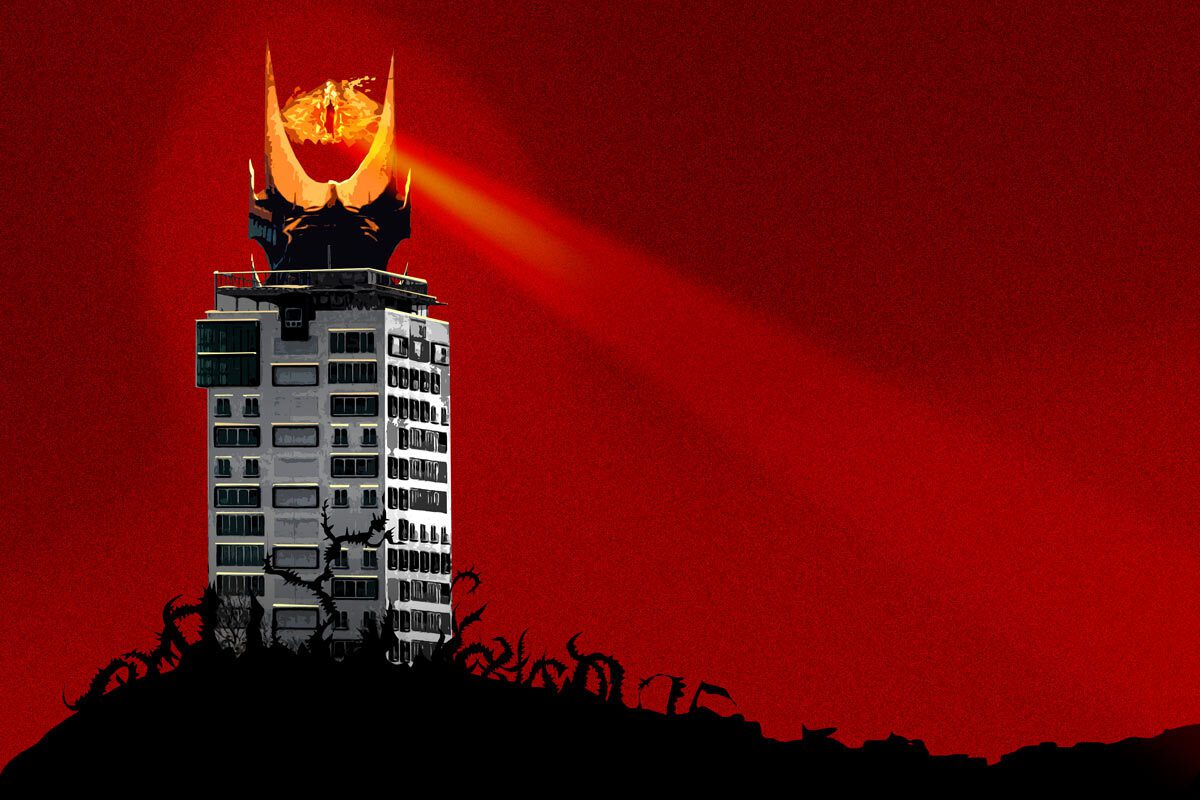Of the 105 parking spaces at the Edificio del Norte condominium, located in Managua’s new city center, only 15 are in use. Throughout the day, most remain empty—except one reserved for a vehicle with diplomatic plates. The once “majestic” complex, unveiled in 2016 as the new housing trend in the capital, now looks “abandoned” and has failed to gain the “public approval” that Bertha Granados, Sales Manager of Edificio del Norte, promised back in March 2016.
“Edificio del Norte is regularly empty,” says a real estate agent who spoke to DIVERGENTES anonymously.
Of the 64 apartments in the complex—built with funds from the Nicaraguan Social Security Institute—only about 20% are currently occupied. The rest, the source explained, technically have “owners” but are neither rented nor inhabited. “They’re rented out in a very strange way, and sometimes used by foreigners who come for just a few days or weeks,” they added.
DIVERGENTES spoke with hotel industry sources and officials from the Ministry of the Interior (MINT) about the lodging situation at Edificio del Norte. Three of them—who also requested anonymity to avoid retaliation from the Sandinista regime—confirmed that the complex is frequently used to host diplomats from barely recognized countries like Abkhazia, a nation recognized only by Nicaragua, Venezuela, Russia, Nauru, and Syria.
“Venezuelan officials also stay there when they come for political events, but only for short stays. Sometimes guests invited by Laureano Ortega for his opera events or for those government media tours with journalists from Russia and other countries also stay there,” said a source from MINT.
Some of the apartments, which official media say cost a total of $10 million, are managed by government officials. Others are owned by individuals close to the Sandinista regime.
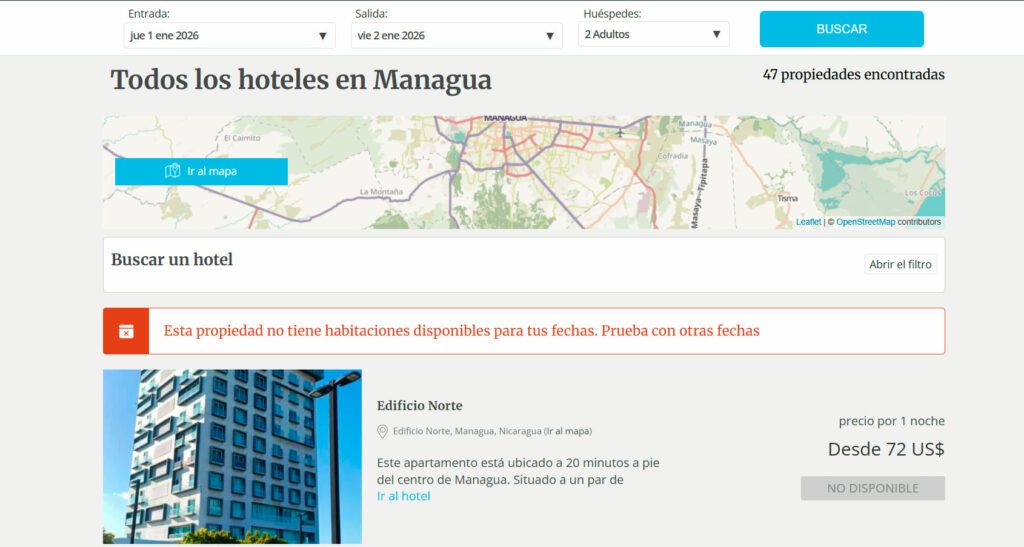
The apartments are not available to just anyone, despite Google listings offering nightly stays for around $75. For months, a large banner was displayed across the building, advertising available units starting at $450.
Carlos, a foreigner who arrived in Nicaragua in 2024 and liked the area where the apartments are located, called the number listed—but no one answered. He went to the property in person and was told by a maintenance worker that they had no information.
“I eventually decided to stay somewhere nearby since I was moving around that area. By chance, I was later invited to one of the apartments by someone visiting the country with ties to the government. I asked how I could rent a unit, and they told me it wasn’t possible—that everything was assigned by order of some official and that it was hard to book one independently,” he recounted.
A “Ghost” Building
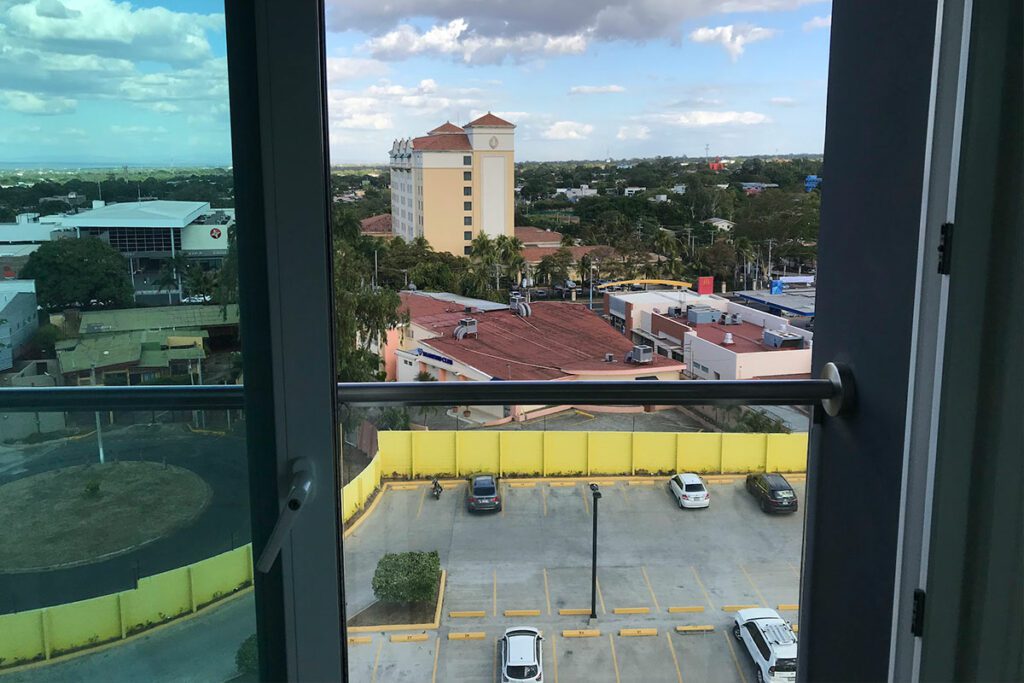
Media reports from 2016 not only highlighted Granados’ claims about the success of Edificio del Norte but also described the luxurious features of the apartments.
For example, Confidencial reported that the units were move-in ready, with porcelain floors and chrome fixtures. Included furniture ranged from kitchens and closets to some bathroom pieces, all made with thermoformed melamine. The accessories and finishes were reportedly imported from Europe.
“Each unit will have the necessary hookups for all services, including split-type air conditioning, so tenants can choose the power of the unit they want to install—or not install one at all,” the report stated.
What was once marketed as a luxurious and one-of-a-kind residential complex in Managua has become an empty, lifeless building. Not just because it lacks residents, but because walking inside, one feels a sense of abandonment—whether intentional or not is unclear.
According to the foreign visitor who entered Edificio del Norte a few times, only one security guard was stationed at the entrance, asking where he was headed and then letting him in without further questions. There were few cars in the parking lot, and he rarely encountered anyone else staying there.
“The reception area was deserted. You’d expect someone to check your ID and show you in, but nothing like that happened. I’d just walk in and never saw anyone. Then I’d go up to the floor where the people I was meeting were waiting. There were very few cleaning staff too,” he said.
On a couple of occasions, he noticed meetings happening on the rooftop and sometimes parties.
At one such party, he crossed paths with a few public figures from Nicaragua—mainly presenters from pro-government media outlets and influencers who promote the country as a tourist destination.
“They were actually very friendly. The vibe was great. Good music, and no one bothered us. I left around 1 a.m., and the party was still going. I don’t know who organized it or when it ended, but it was strange that as I walked down through the building, all the other floors were dark. I think that was the only day it felt alive—after that, it went back to being a ghost building,” said the visitor, who asked to remain anonymous for safety reasons.
A Business Without Profit
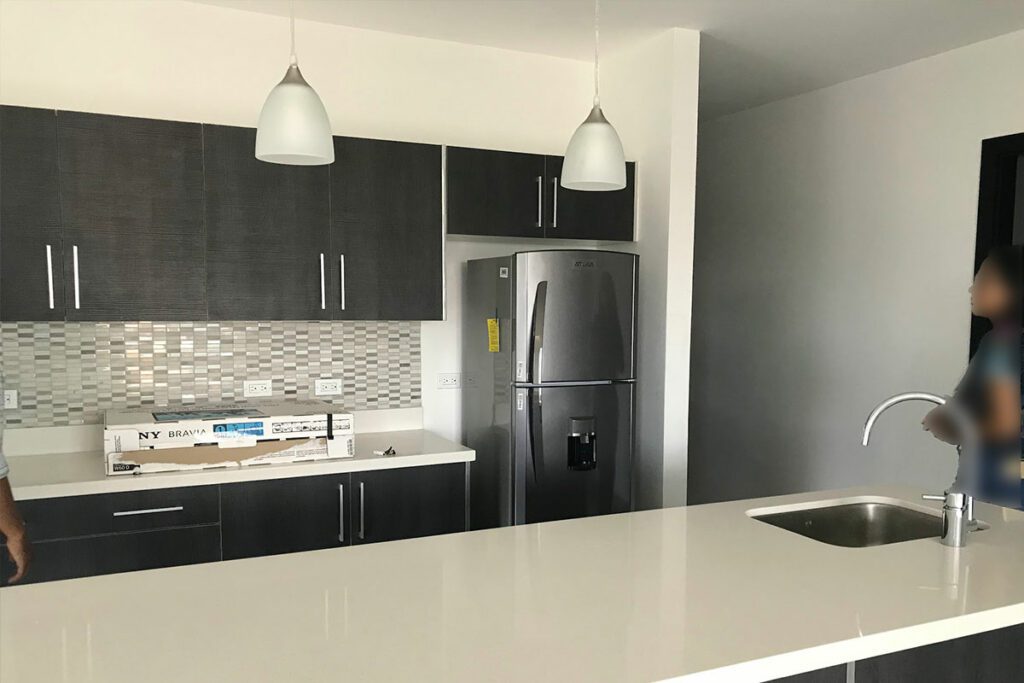
According to Granados, the apartments range from one to three bedrooms, with sizes between 60 and 170 square meters. Prices ranged from $126,600 to $427,000.
“It was a boom at the time. I was one of those who believed it would make a huge impact. But everything fell apart when the source of the funding came to light. The investor didn’t like that at all. Then the 2018 crisis hit… it was one thing after another,” said the real estate agent interviewed by DIVERGENTES.
According to an investigation by La Prensa, the Edificio del Norte project was funded with two loans from the Nicaraguan Social Security Institute (INSS) totaling $12.6 million. The beneficiary was Desarrollos del Norte S.A. (Denorsa), a company with no previous experience in the field, created just three months before the loan was approved. Its president, attorney Rafael Chamorro Fletes, said the company would use the building as collateral in case of default.
La Prensa reported that the INSS board approved an initial loan of $4.2 million to Denorsa, even though the company had a startup capital of just 50,000 córdobas—around $2,000 at the time.
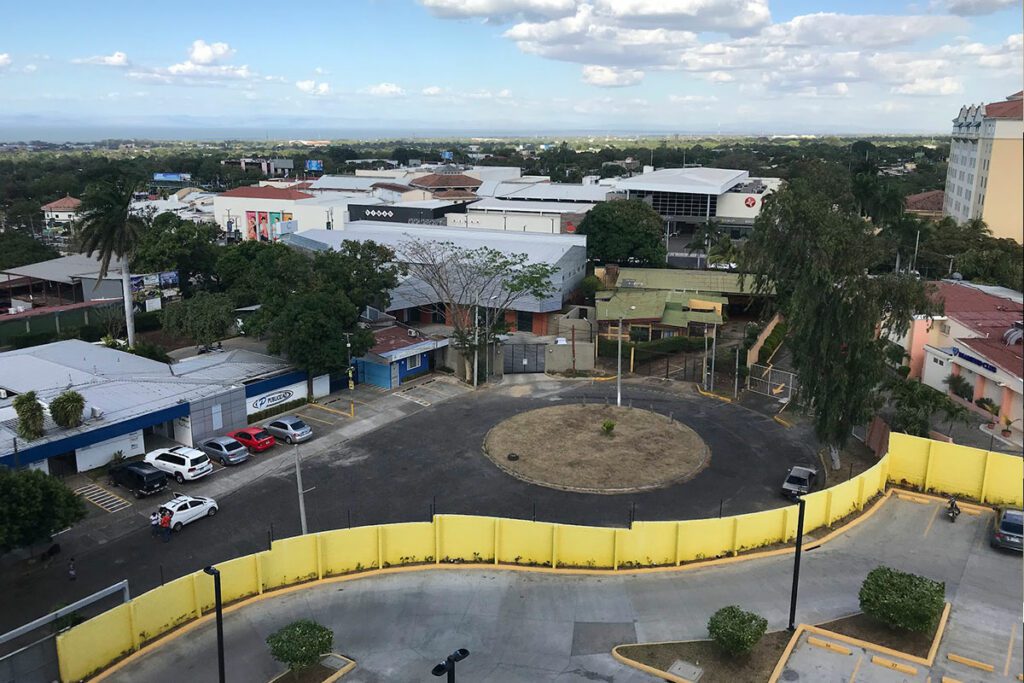
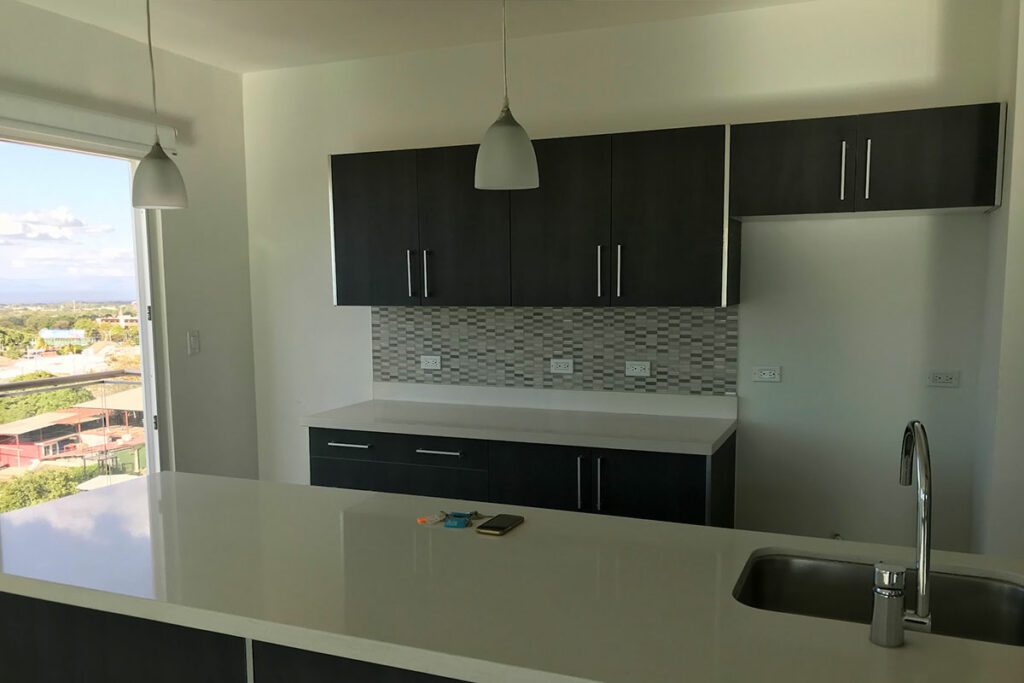
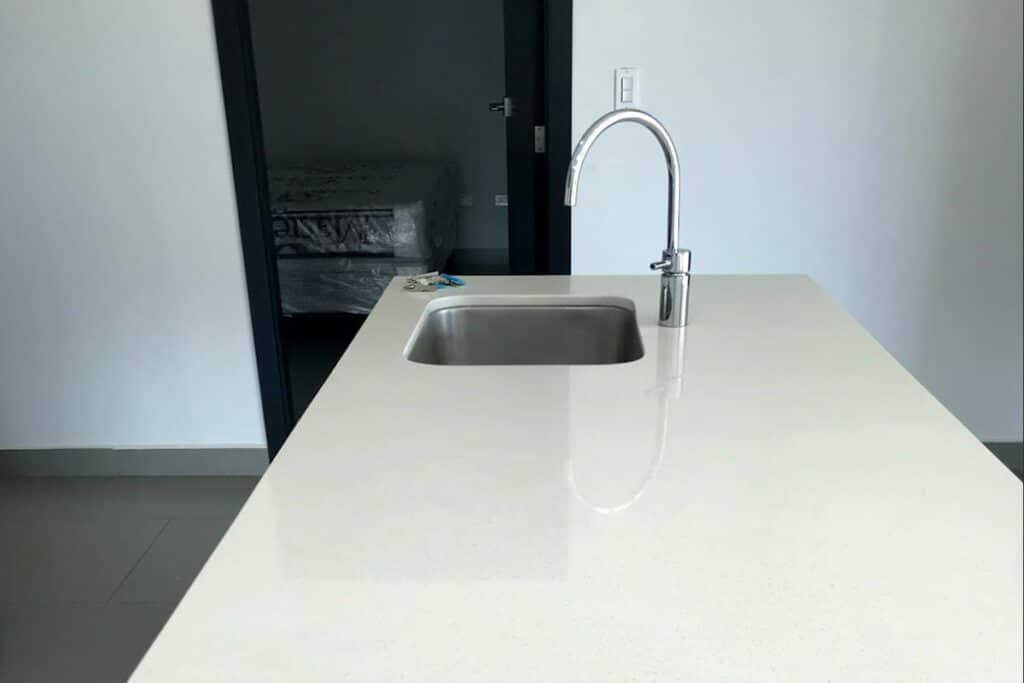
Later, an additional $8.4 million was added. Chamorro Fletes confirmed the total loan amount but did not explain how the INSS approved it under those conditions.
On July 28 of that same year, La Prensa revealed that INSS directors—despite not being legally authorized to approve loans for luxury real estate—had granted loans for the construction of Edificio del Norte, San Sebastián condominium, and Pinares de Santo Domingo. All three projects were linked to businessman Tirso Celedón Lacayo, a board member of Banco Corporativo, also known as Albanisa’s bank—a holding company run by people close to the Ortega-Murillo family and developed through the oil agreement with Venezuela.
“All this caused a stir. Questions about ethics, legality… and when it comes to investment, you can’t taint a project like that. It scares off investors. The same thing happened with that other building near Monte España Hospital. So these major investments made with INSS funds ended up going nowhere—losses, really—because there’s no profit, and no one’s even trying to get them up and running,” the real estate agent concluded.



